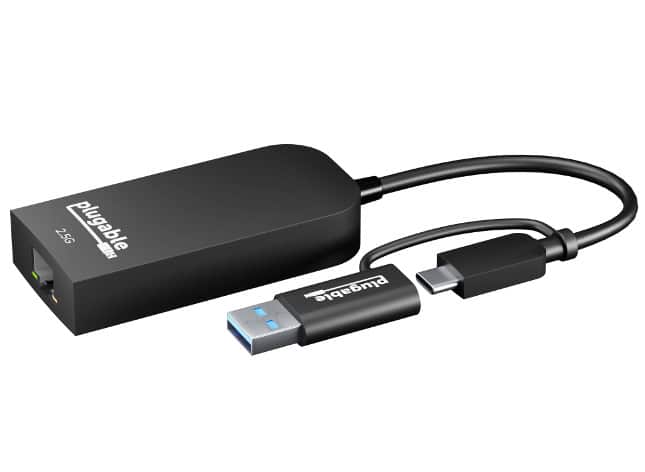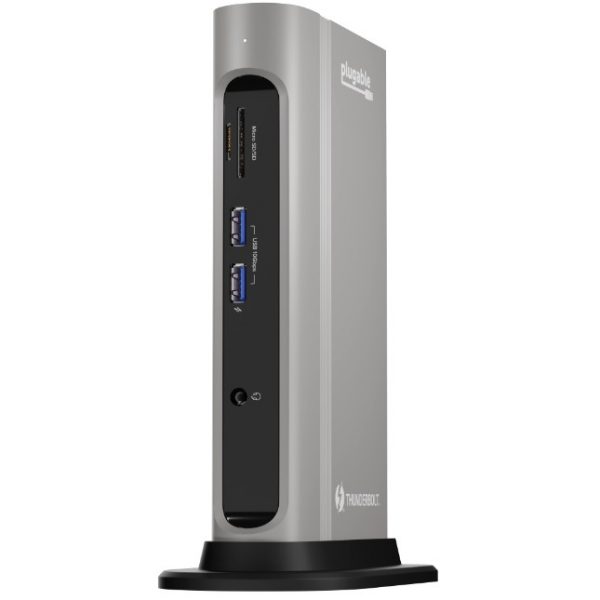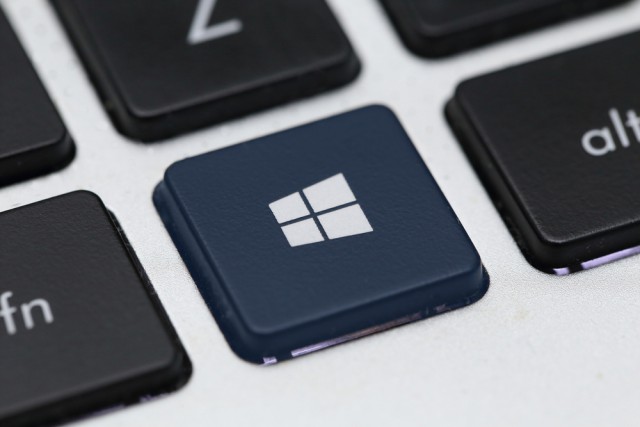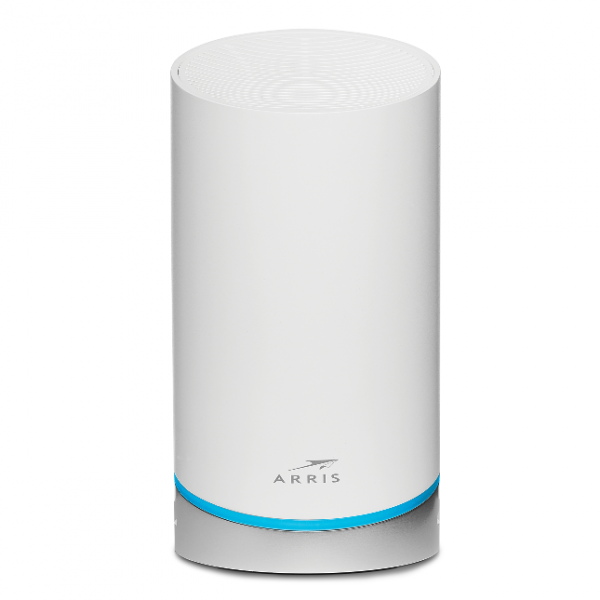
Plugable announces 2.5 Gigabit USB-C Ethernet adapter for Windows, Mac, and Linux
While consumers seem to love thin and light laptops, there is one big downside to such svelte computers -- a lack of ports. You see, if a port is thicker than the body of the notebook, then it simply can't fit. While USB-A and USB-C ports are thin enough to be included on many laptops these days, there is one useful (yet thick) port that is being omitted -- Ethernet. Yes, the once-ubiquitous networking port is becoming increasingly more rare. This isn't a big deal for some consumers, as they will likely only ever use Wi-Fi. Some folks, however, still have either a want or need to connect to a network using a cable.
Thankfully, with dongles, you can add an Ethernet port to pretty much any computer these days. For the vast majority of consumers, a gigabyte dongle (such as this one that costs less than $20) is currently more than enough. But what if you have a desire to connect to a multi-gig network? In that case, there are faster dongles, such as this excellent USB-C 2.5G model from TRENDnet. Soon, there will be yet another such product on the market, this time from Plugable. What makes this USB-C 2.5G adapter so special is that it has an attached Type-A adapter.

US government-funded phones come with pre-installed malware
Researchers at Malwarebytes have uncovered malware pre-installed on phones offered under the US government-funded Lifeline Assistance program.
Assurance Wireless by Virgin Mobile offers the UMX U686CL phone as their most budget-friendly option at only $35 under the scheme. However, users are getting more than they bargained for. An app called Wireless Update is designed to update the phone's OS but can also install other apps without consent.

Plugable unveils 100W TBT3-UDZ Thunderbolt 3 and USB-C docking station
If you have a laptop with Thunderbolt 3, and you like to use the computer as a makeshift desktop, a docking station is a must-buy. Whether you own a Mac or Windows 10 notebook with TB3, one of these docks can transform your portable computer into a powerful and useful desk-based workstation. A single wire from the docking station to the computer will provide you with numerous ports, plus charging. It is immensely convenient to plug in one cable and immediately have access to a mouse, keyboard, large monitor, etc.
There are many Thunderbolt 3 and USB-C docks on the market these days, but thanks to the Intel Titan Ridge chipset, there are now models that can accommodate both of those connectivity options (such as this one from StarTech). Plugable has a new such model, and it looks incredible. It has one big feature that many other docks are lacking -- an SD card reader on the front. Taking it a step further, it even has a dedicated micro SD card port! That is very cool, as it means you can read the smaller card without the need of an adapter.

Why your business needs cyber risk insurance [Q&A]
Protecting against cyberattacks and guarding against technology failures is something that most businesses now do as a matter of course. But insuring against the risks is less common and could be leaving companies open to major losses.
We spoke to Jack Kudale, CEO of cyber insurance specialist Cowbell Cyber to find out more about cyber risk insurance and why it's increasingly being seen as an essential safeguard.

Samsung T7 Touch is a USB 3.2 Gen 2 SSD with integrated fingerprint reader
CES 2020 has been very exciting for those interested in data storage. Just yesterday, Western Digital unveiled a prototype 8TB portable SSD plus a diminutive 1TB flash drive with both USB-C and USB-A connectivity. Both of these drives should prove very popular with consumers -- if/when they hit stores.
Today, it is Samsung's turn to wow the data storage community. The company's latest SSD, called "T7 Touch," is an external drive that uses USB-C for connectivity and features USB 3.2 Gen 2 speeds. What makes it particularly interesting however, is its integrated fingerprint reader which is used for secure hardware encryption.

Microsoft releases Windows 10 Build 19541 to the Fast ring
The holidays are nothing but a distant memory now, and so it’s back to business as usual for Microsoft which has just released its first new Windows 10 build of 2020.
Fast ring Insiders are now receiving builds from future versions of the operating system, and new Build 19541 introduces some minor improvements.

Satechi launches 108W Pro USB-C PD Desktop Travel Charger
Just yesterday, Satechi launched a revolutionary charging mat that can charge multiple devices at once. While that is very convenient, not all people like wireless chargers. After all, wired charging still remains a faster option. Not to mention, it is still necessary for larger devices, such as laptops and tablets. And so, wired chargers are still very much relevant.
Today, Satechi launches a new product for those that prefer a wired charging experience. Called "108W Pro USB-C PD Desktop Travel Charger," it has a total of four USB ports -- two are USB-C, while the others are USB-A. It plugs into a standard wall power outlet, making it a great choice for both home and on-the-go charging. It can charge smartphones, tablets, laptops, and more.

With Chrome 80, Google is making website notifications STFU
When Mozilla released Firefox 72 yesterday, users were happy to find that the company had tamed the popup messages that ask whether a website should be allowed to send notifications. Now, with Chrome 80, Google has done the same.
Google notes that while the option to receive notifications from sites can be useful, they are "also a common complaint as many websites request the notification permission on first visit rather than at contextually relevant moments in the user's journey". But rejoice, for there is a solution!

Google's Project Zero is testing new vulnerability disclosure procedures
The vulnerability-finding Project Zero has found Google on the end of both criticism and praise, but there has long been concern about the policy of being very quick to reveal details of vulnerabilities that have been discovered.
Previously Project Zero has given software developers a 90-day window of opportunity to fix bugs before it goes public. Details of vulnerabilities would also be published as soon as a fix was released. For 2020, Google is trying something new. The company will wait a full 90 days before disclosing a vulnerability, regardless of when the bug is fixed.

TiKTok vulnerabilities could allow hackers access to personal data
Multiple vulnerabilities in the popular TikTok video-sharing app and its back end could have allowed attackers to manipulate content on user accounts, and even extract confidential personal information.
Researchers at Check Point have found that an attacker could send a spoofed SMS message to a user containing a malicious link. If the user clicked on the link, the attacker was able to access the user's TikTok account and manipulate its content by deleting videos, uploading unauthorized videos, and making private or 'hidden' videos public.

Satechi's AirPower-like Trio Wireless Charging Pad can simultaneously charge your iPhone, Apple Watch, and AirPods
Remember the Apple AirPower? If not, that is totally understandable. After all, the product never actually saw release. Please know, it was Apple's planned Qi wireless charging mat that could charge multiple devices at once. For whatever reason, the iPhone-maker canceled the product before it reached the public, saying it was not up to Apple's quality standards.
Impressively, popular accessory-maker Satechi has managed to do what Apple couldn't. You see, today, Satechi releases the Trio Wireless Charging Pad, which is capable of charging your iPhone, Apple Watch, and AirPods at the same time. This is with a single USB-C cable. Wow. Of course, since it uses the Qi wireless charging standard, it can charge non-Apple devices too, such as an Android phone.

Get 'Kali Linux -- An Ethical Hacker's Cookbook, 2nd Edition' ($44.99 value) FREE for a limited time
Many organizations have been affected by recent cyber events. At the current rate of hacking, it has become more important than ever to pentest your environment in order to ensure advanced-level security.
Kali Linux -- An Ethical Hacker's Cookbook from Packt Publishing is packed with practical recipes that will get you off to a strong start by introducing you to the installation and configuration of Kali Linux, which will help you to perform your tests.

Firefox 72 improves site notifications tool, rolls out picture-in-picture video to Mac and Linux
Mozilla has released Firefox 72.0 for desktop, along with Firefox for Android 68.4 and Firefox ESR 68.4.0.
Mac and Linux users gain the picture-in-picture video feature introduced for Windows in Firefox 71. Fingerprinting scripts are now blocked as standard with this new release, while intrusive pop-up notifications from websites have been confined to the Address Bar to prevent disruption when browsing.

Four surprising things we learned in 2019 about startups and sexual offenses
So far this century, one tech startup after another has reshaped the way that we live. Facebook transformed social interaction. Uber changed how we get around. Tinder changed how we date. While these companies have been highly forward-thinking, they have also persistently struggled to solve crucial challenges regarding background checks and user safety.
2019 brought many of these issues into the limelight. Here are four of the most surprising things we learned about startups and sexual offenses in 2019.

ARRIS unveils Wi-Fi 6 Tri-Band AX6600 Mesh SURFboard mAX System
Well, folks, with 2020, the Wi-Fi 6 (802.11ax) revolution is truly here. At this point, no one should be buying an 802.11ac router, After all, you can score a nice Wi-Fi 6 router for under $100. Of course, for many larger homes, a single router simply isn't enough. Instead, mesh systems are all the rage these days. If you aren't familiar, mesh is when two or more access points are used together for a single network. Basically, it should give you better Wi-Fi range without needing to mess around with extenders other other clunky add-ons.
Today, ARRIS unveils its latest mesh system, and it uses the aforementioned Wi-Fi 6. The AX6600 Mesh SURFboard mAX System is tri-band and features up to 5500 square feet of Wi-Fi coverage. It features a Quad-core ARM-A7 Cortex processor and has optional Amazon Alexa support. Each access point features two Gigabit Ethernet ports -- one wan and one wan/lan. This means the unit that connects to the modem will only be able to connect to one other hardwired device, but the second unit can connect to two.
